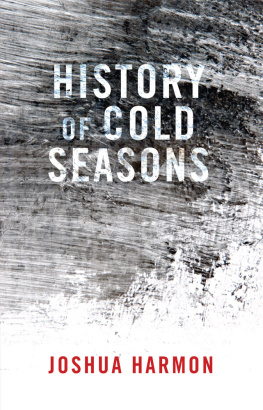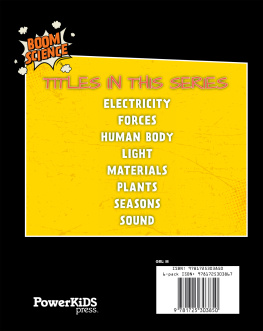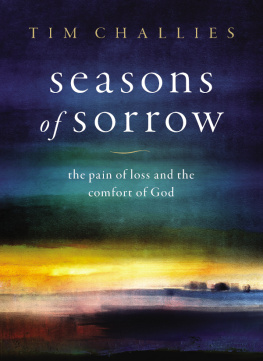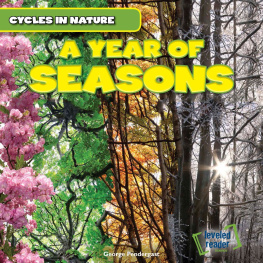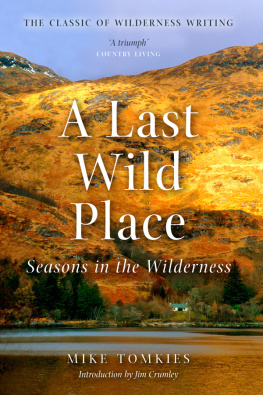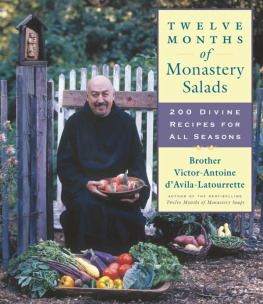Joshua Harmon - History of Cold Seasons
Here you can read online Joshua Harmon - History of Cold Seasons full text of the book (entire story) in english for free. Download pdf and epub, get meaning, cover and reviews about this ebook. year: 2014, publisher: Dzanc Books, genre: Detective and thriller. Description of the work, (preface) as well as reviews are available. Best literature library LitArk.com created for fans of good reading and offers a wide selection of genres:
Romance novel
Science fiction
Adventure
Detective
Science
History
Home and family
Prose
Art
Politics
Computer
Non-fiction
Religion
Business
Children
Humor
Choose a favorite category and find really read worthwhile books. Enjoy immersion in the world of imagination, feel the emotions of the characters or learn something new for yourself, make an fascinating discovery.
- Book:History of Cold Seasons
- Author:
- Publisher:Dzanc Books
- Genre:
- Year:2014
- Rating:4 / 5
- Favourites:Add to favourites
- Your mark:
- 80
- 1
- 2
- 3
- 4
- 5
History of Cold Seasons: summary, description and annotation
We offer to read an annotation, description, summary or preface (depends on what the author of the book "History of Cold Seasons" wrote himself). If you haven't found the necessary information about the book — write in the comments, we will try to find it.
History of Cold Seasons — read online for free the complete book (whole text) full work
Below is the text of the book, divided by pages. System saving the place of the last page read, allows you to conveniently read the book "History of Cold Seasons" online for free, without having to search again every time where you left off. Put a bookmark, and you can go to the page where you finished reading at any time.
Font size:
Interval:
Bookmark:
HISTORY OF COLD SEASONS
Also by Joshua Harmon
QUINNEHTUKQUT
SCAPE
LE SPLEEN DE POUGHKEEPSIE
THE ANNOTATED MIXTAPE
HISTORY OF COLD SEASONS
JOSHUA HARMON

Dzanc Books
5220 dexter Ann Arbor
Road Ann Arbor, MI 48103
dzancbooks.org
Copyright 2014 Joshua Harmon
All rights reserved.
ISBN 978-1-936873-43-2
Cover design by Steven Seighman
Cover photograph by Andrew Zawacki
Grateful acknowledgment is made to the publications in which these stories were originally published, sometimes in slightly different form:
American Letters & Commentary: Sundowning
Antioch Review: The Burning House, The Lighthouse Keeper
Black Warrior Review: The Fisherman and His Wife
BOMB: The Dead Man
Chelsea: History of Cold Seasons
Massachusetts Review: Dundee
New England Review: The Passion of Asa Fitch
TriQuarterly: Rope
Verse: Dear Oklahoma
Witness: Hattie Dalton, Signs
Library of Congress Cataloging-in-Publication Data
Harmon, Joshua, 1971
[Short stories. Selections]
History of cold seasons / Joshua Harmon.First edition.
pages; cm
ISBN 978-1-936873-43-2 (pbk.)
I. Harmon, Joshua, 1971 Burning House. II. Title.
PS3608.A7485A6 2014
813.6dc23
2014037077
Printed in the United States of America
FIRST EDITION
TO MY MOTHER & FATHER
CONTENTS
The number of creatures that kept a Rigid Fast, shutt up in Snow for diverse weeks together, and were found alive after all, have yielded surprizing stories unto us.
Cotton Mather,
A Dreadful Snow Storm
HISTORY OF COLD SEASONS
ROPE
Our brother keeps a girl tied to a tree in the woods. Mindy and I believe that Jamie, our brother, stole the rope from Joe Letourneaus fathers garage, where everyone has seen the stacked coils of it beside the broken-toothed rakes and broken-spoked bikes and broken plastic bits of last Christmass toys that Mr. Letourneau saves there, or that Jamie doesnt even use a ropetoo rough and raspy on his girls skinbut clotheslines that for months he has at night collected from the backs of houses, using his knife to snick off a length here, a few loops there, or that Jamie has simply snitched the clotheslines new and tight-wound from the wicker basket we once saw them in at the hardware store where our mother had gone for a new lock to put on the door, after one of the men our mother had brought home had left, keeping the copy of the extra key our mother had, a few weeks earlier, sent us to the hardware store to have cut.
At supper we catch our brother sneaking food into his pockets. Later, when hes supposed to be doing his homework at the yard sale desk in his room, we know that hes bellying over his windowsill, slipping down through the branches of the maple there, to bring the food to the girl he keeps tied up in the woods. We know that what our mother or our grandmother might think only a wind-bothered branch bumping against the house is our brothers foot finding a hold, his knee knocking a clapboard. We have seen him swipe the hairbrush from our mothers nightstand, carry it into the bathroom, and, with hair shiny and tucked behind his ears, replace it in her room. When it rains, he steals an umbrella from the closet and sits in the woods with the tied-up girl, holding the umbrella over her head to keep her from getting wet. We believe he also holds her hand. We have guessed he may read to her from a book, sometimesthese days there seems always to be some silent word he is testing out on his lips. Mindy thinks he gives his girl cigarettes pinched from our mothers and grandmothers purses to smoke while she waits for him to come to the woods after school and put her hand in his.
How can she smoke if her hands are tied up? is what I wanted to know. How can she hold hands?
Do you think he holds the cigarette up to her lips? I also wanted to know.
How can he hold the cigarette, the umbrella, and her hand all at once? I did not even bother to ask.

Wake up, wake up, sleepies, wake up, our mother says, and we wake to warmthfirst me, then Mindy, yawning and rubbing her eyesto the smell of smoke beyond the blankets from a fire already filling the woodstove. The smoke smells too smoky, like the fire didnt catch at first, paper blazing blackly away to ashes before it could spark sticks, wood scorched but not burning, until someone added more paper and kindling and kneeled on cold stones to blow embers into flames.
Still, under these bunched and rumpled blankets is the most warmth, and under them we staymy legs, Mindys, a breath, a wrinkle, a cool edge by my hand, a kick to free a foot from a tangle of fabric. I can hear the reel of rain on the roof. Through a barely opened eye I see our mothers dark face over my face in bed, her dark hair hanging darkly down to frame it, her robe a loose knot. Wake up, wake up, she says, almost singing the words. Mindy turns away, and the blankets make a sound that says hush, hush.
Our mother plucks at those blankets and tugs a corner free. The smoke smell is fainter now. What little of the day I can see through an eye half-opened and shut, opened again and shut again, invents itself in blue clouds and rain beyond our drop-streaked window. A Saturday should always be a sleeping day.
But our mother yanks the blankets away, her hands gathering up all the heavy covers and sweeping them into a heap on the floor. There is a sticky taste on my tongue. There is Mindys scrunched-up foot, and Mindys half-asleep whine at the lack of a covering. There is someones eyelash stuck on the pilled pillowcase. Then there is our mother.
Wake up, our mother says, looking from me to Mindy. Wake up. You need to find your brother.
Our mother found Miles not long after the Fourth of July, early one evening as the crickets rubbed their legs in the wild weedy grass behind the house. Our mother came home in a loud pickup truck we did not remember seeing, loud enough that until the man driving it turned off the engine we couldnt hear the crickets. She came home with summers first paper bag of corn for us to shuck the husks and silk from, which she set on the front porch between the two slack-wove folding chairs, with a six-pack of brown bottles that clinked when she carried them into the kitchen to find the churchkey for, and with Miles, who creaked shut the door of his pickup truck, walked up the porchs two sagging steps, and held open the screen door for us, a stub of cigarette in his mouth and his sleeves rolled up to show greeny ink under his skin that mightve shaped a face or a flag or a flower, or that maybe mightve said someones name.
Hey, he said to us, nodding once beneath the grease-fingered brim of his cap. Fireflies winked in the dusky yard behind him. Corns on the porch.
Youre letting in the bugs, Mindy said.
Miles had nine and a half fingers and a ponytail and pants that never fit his hips. Ask him was what our mother told us to do, and Dont ask was what he told us, jacking up those pants and correcting the curl of his cap brim, when we asked him what had happened to the rest of his finger, but then one side of his mouth would pull back and hed poke us with the smooth-skinned end of that stump until we ran away. That stump, the end of it, had a seam like the ends of the plants our mother pinches off, saying, Grow, grow, damn you.
Days it rained, wed hear Miless snores even after we came home from school, but on clear mornings the sound of him revving his pickup truck to keep it from stalling in the side yards worn-away grass would wake us. What woke us at night was the loose loud slur of Miless voice, or the stumble of his feet over the porch steps as he and our mother came home from wherever it was theyd gone.
Next pageFont size:
Interval:
Bookmark:
Similar books «History of Cold Seasons»
Look at similar books to History of Cold Seasons. We have selected literature similar in name and meaning in the hope of providing readers with more options to find new, interesting, not yet read works.
Discussion, reviews of the book History of Cold Seasons and just readers' own opinions. Leave your comments, write what you think about the work, its meaning or the main characters. Specify what exactly you liked and what you didn't like, and why you think so.

